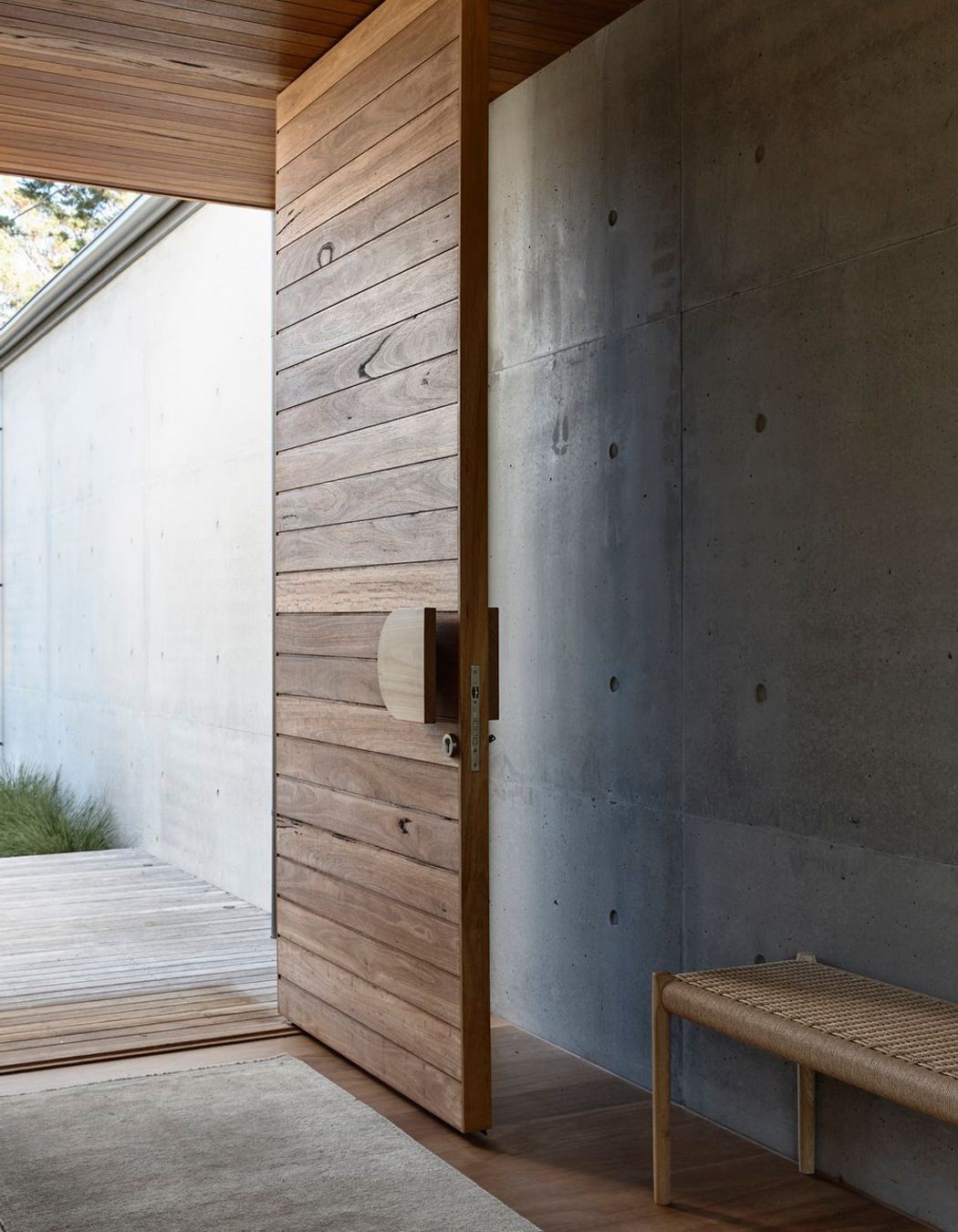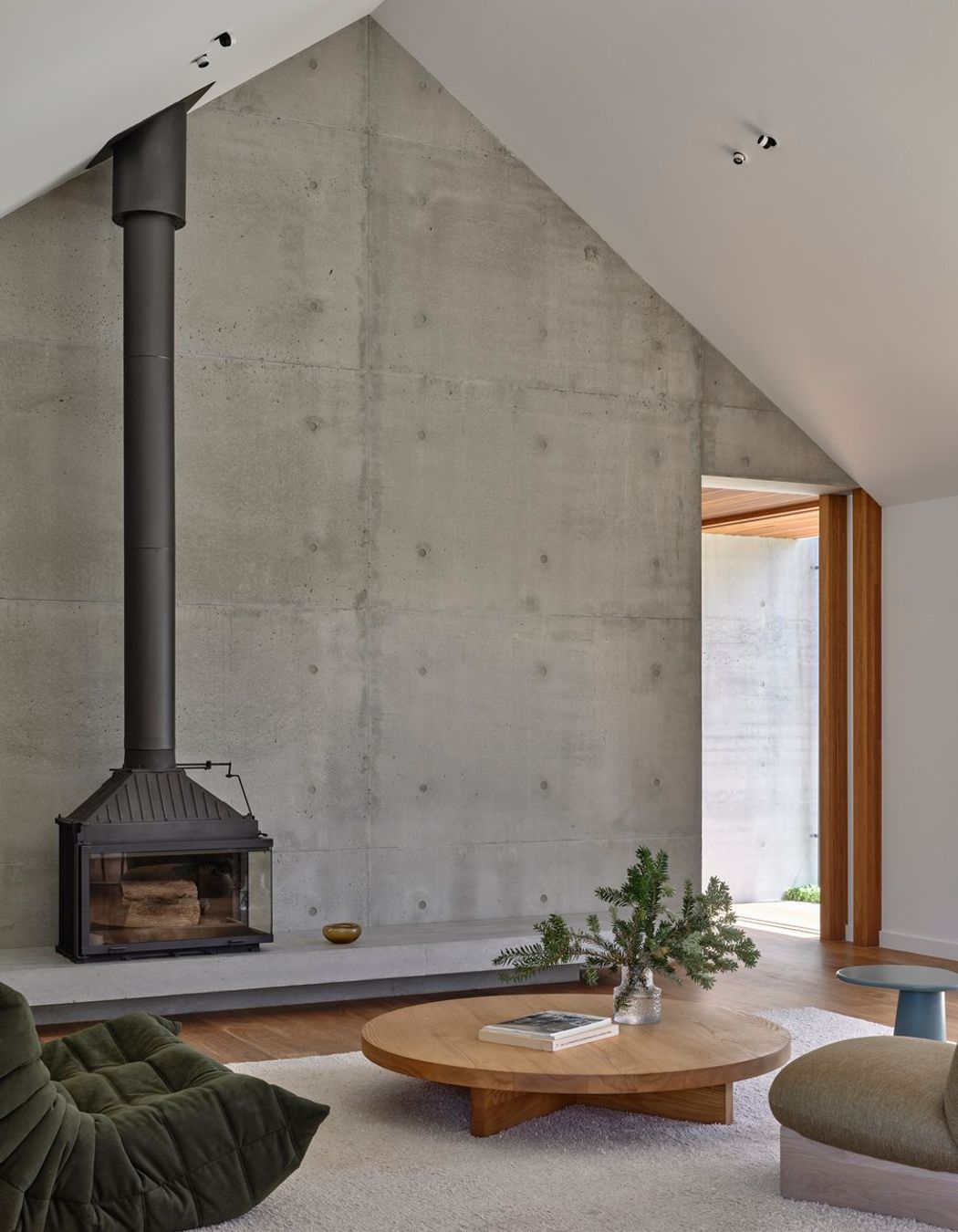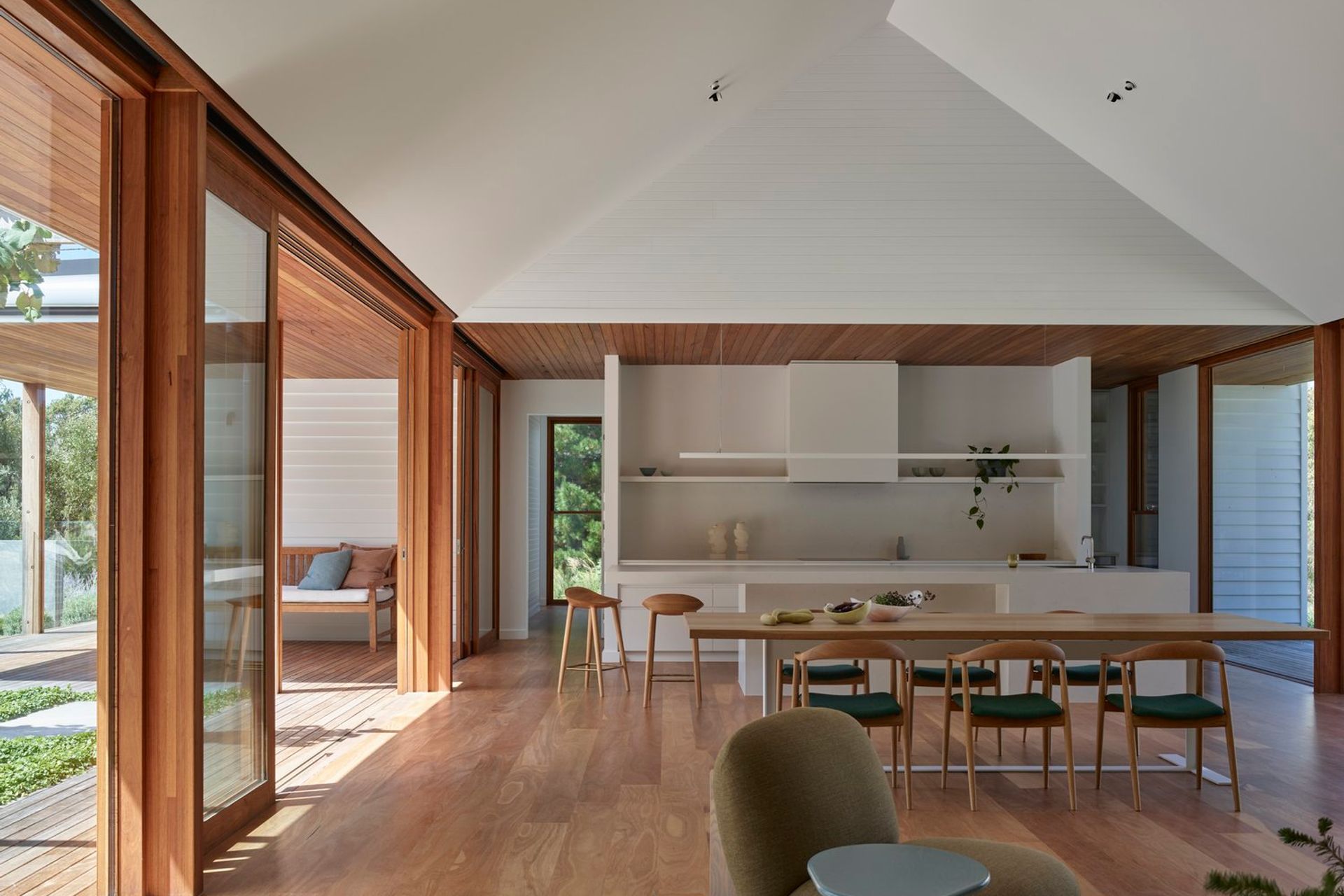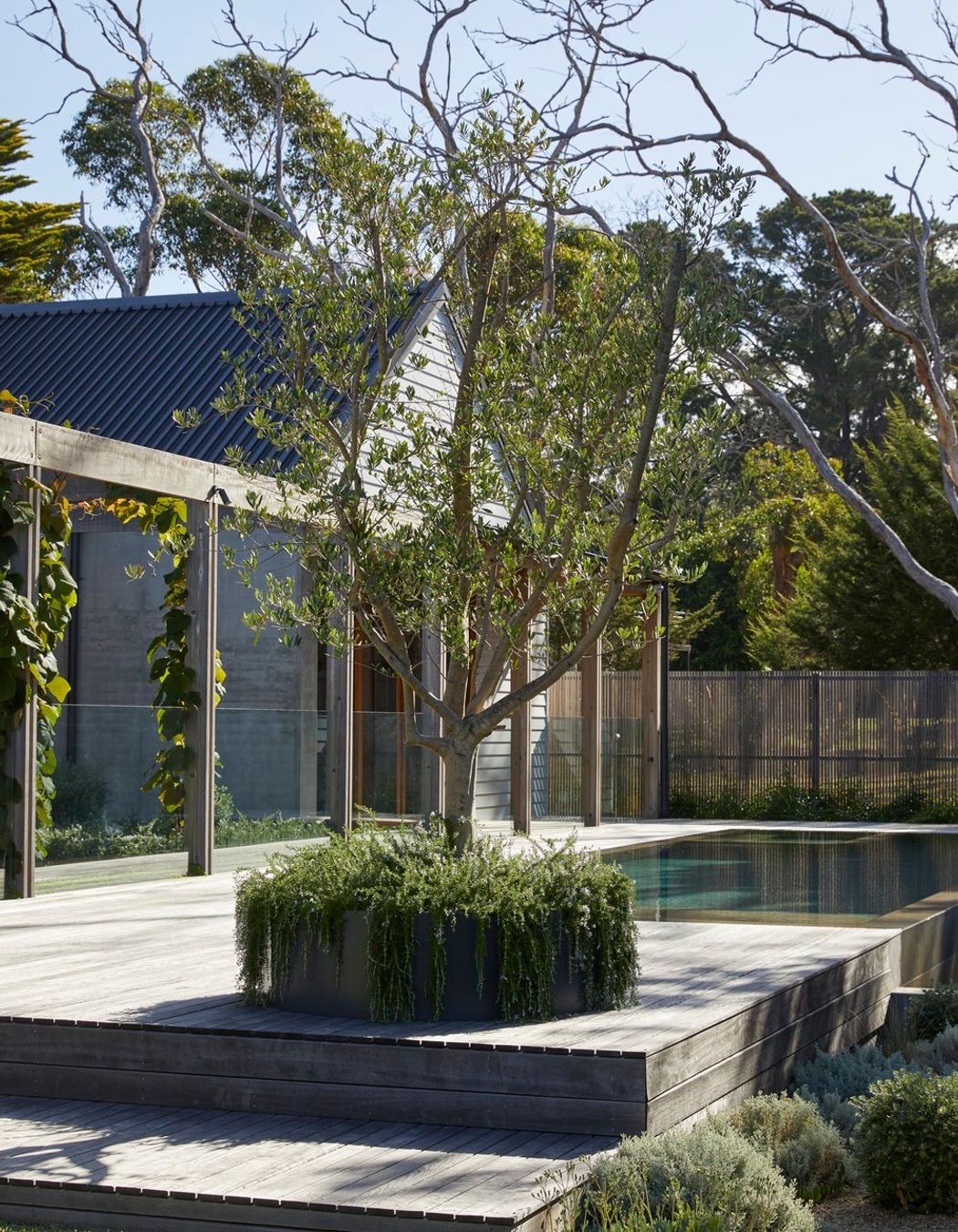A humble but heavenly home on the Mornington Peninsula
Written by
19 September 2022
•
5 min read

Planned Living Architects, based on the Mornington Peninsula, is accustomed to designing grand holiday homes along the coastline from Inverloch through to Torquay, but when they were asked to design a family home that would be lived in permanently, they jumped at the chance.
The owners of this Shoreham house, who worked locally, didn't require their home to make a statement. Rather, their vision was for a relaxed home that would meet their family’s needs now and in the years to come.
“It's not a big house and I think that suits them quite nicely,” Planning Living Architects director Jay Earles told ArchiPro. “It was refreshing for us as well; they really just wanted to build what they needed, just for them and their immediate family – it wasn’t excessive.”

The home's gabled roofs and weatherboards reference not just the Australian vernacular, but also the existing buildings on site. The one-acre site was once part of Buxton School Camp, the history of which can be seen in the remaining buildings dotted around: a small laundry, a hall with stage, and a chapel just over the boundary fence.
The three-bedroom house has two wings – one for the parents and one for their two live-at-home adult children. The children’s wing, to the left of the front door, has two bedrooms – each with ensuites, and a rumpus room that opens to the rear deck and swimming pool.
When it comes time for those children to move out of home, the parents will be able to close off that wing between visits. Their own bedroom overlooks the same stunning bushland view as the main living areas, and has a walk-in wardrobe and spacious ensuite.
“They wanted a house that wasn't wasn't too big, that was somewhat understated and relatively modest compared to what we could have done or what you see around the area,” Jay says.


It’s easy to see why the owners chose this site for their new home. It backs onto a bushland reserve and has direct access to a track leading to Honeysuckle Point, a well-known surf break.
“This house was designed to respect and pay homage to its location,” Jay says. “The connection from indoors to outdoors is really nice; there's a certain level of transparency from when you're standing out on the driveway side, right through the house to the swimming pool and all the way to the bushland reserve beyond and I think that just has a really nice feeling about it.”
The bushland reserve also enabled the architects to design a home that felt secluded – no neighbouring houses can be seen from any window in the house.
This house was designed to respect and pay homage to its location

The home is designed to be low-maintenance, an important consideration given its proximity to the ocean, and bushfire ready. The site has a bushfire rating of BAL29, which is high but not the highest, so the architect could specify hardwood timber for the decking and timber posts. Blackbutt is also extended indoors in the flooring, timber-lined ceiling, and the floor-to-ceiling sliding glass doors that open to the pool and outdoor entertaining area.
“I think the combination of materials works really well; there's a good mixture of bold materials and warm, softer materials,” Jay says.

Concrete is one of those bold materials grounding the home inside and out, with the walls providing thermal mass. The home is designed to allow the northern winter sun to penetrate, but keeps the heat out during the warmer months with carefully considered shading.
“The first thing we look at with any design is good orientation for passive-solar design,” Jay says.
Solar panels and rainwater tanks are other sustainability measures. “We have a lot of rainwater that we're capturing and it was quite deliberate that we weren't trying to hide the rainwater tanks; we wanted it to be shown that it was somewhat of a rural house.”


The hub of the home is the open-plan kitchen, living and dining area, which forms one open space under a cathedral ceiling and opens to the north via large sliding glass doors. Tones of white and natural timber add to the harmonious feel. The home can feel light and airy when the doors are opened up on summer days, or warm and cosy with the winter sun coming in through the glass. A Philippe Cheminees fireplace adds warmth and ambience on cold days and nights, and has been prominently positioned as a feature in the living area.
“We've really focused on the main zone of the house rather than the more functional elements like the ensuites and laundry and robes … we felt we needed to concentrate our budget on the things that mattered the most.”


Landscaping was integral to the success of this project, with Plume Studio involved in the design of the driveway, pool, fencing and plantings.
“Because it was such an extensive site, having that thought put into the landscaping was pretty important,” Jay says. “Being able to soften the building elements with plantings was pretty critical – the building and the landscape play off each other nicely.”

Native grasses soften the property and provide a seamless transition to the adjacent bushland. A weathered timber pergola, made shady with climbing plants, connects the house with the pool.
A glass pool fence makes for uninterrupted views over the pool to the bushland, while corten steel-rod boundary fencing blends into the bushland colours and adds to the rustic feel. Planted ground cover between outdoor pavers further softens the home’s hard surfaces.
Discover more projects by Planned Living Architects on ArchiPro.